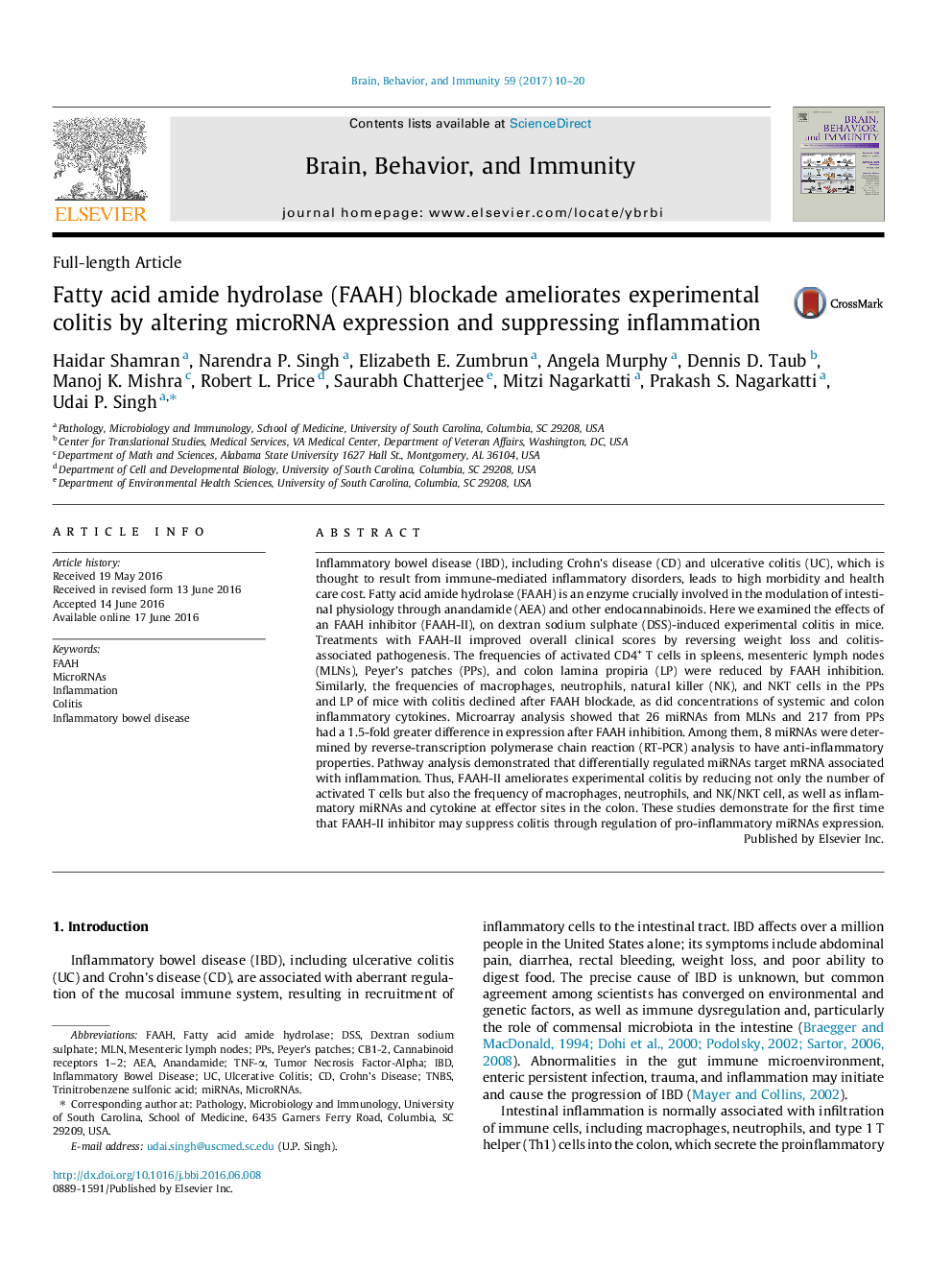| کد مقاله | کد نشریه | سال انتشار | مقاله انگلیسی | نسخه تمام متن |
|---|---|---|---|---|
| 5040923 | 1473908 | 2017 | 11 صفحه PDF | دانلود رایگان |

- Fatty acid amide hydrolase (FAAH) involved in the modulation of intestinal physiology.
- FAAH-II improved clinical scores reversing weight loss and colitis-associated pathogenesis.
- FAAH-II reducing the frequency of activated T cells, macrophages, neutrophils, and NK/NKT cells in the colon.
- FAAH-II mediates inflammatory cytokine and miRNAs at mucosal sites.
Inflammatory bowel disease (IBD), including Crohn's disease (CD) and ulcerative colitis (UC), which is thought to result from immune-mediated inflammatory disorders, leads to high morbidity and health care cost. Fatty acid amide hydrolase (FAAH) is an enzyme crucially involved in the modulation of intestinal physiology through anandamide (AEA) and other endocannabinoids. Here we examined the effects of an FAAH inhibitor (FAAH-II), on dextran sodium sulphate (DSS)-induced experimental colitis in mice. Treatments with FAAH-II improved overall clinical scores by reversing weight loss and colitis-associated pathogenesis. The frequencies of activated CD4+ T cells in spleens, mesenteric lymph nodes (MLNs), Peyer's patches (PPs), and colon lamina propiria (LP) were reduced by FAAH inhibition. Similarly, the frequencies of macrophages, neutrophils, natural killer (NK), and NKT cells in the PPs and LP of mice with colitis declined after FAAH blockade, as did concentrations of systemic and colon inflammatory cytokines. Microarray analysis showed that 26 miRNAs from MLNs and 217 from PPs had a 1.5-fold greater difference in expression after FAAH inhibition. Among them, 8 miRNAs were determined by reverse-transcription polymerase chain reaction (RT-PCR) analysis to have anti-inflammatory properties. Pathway analysis demonstrated that differentially regulated miRNAs target mRNA associated with inflammation. Thus, FAAH-II ameliorates experimental colitis by reducing not only the number of activated T cells but also the frequency of macrophages, neutrophils, and NK/NKT cell, as well as inflammatory miRNAs and cytokine at effector sites in the colon. These studies demonstrate for the first time that FAAH-II inhibitor may suppress colitis through regulation of pro-inflammatory miRNAs expression.
Journal: Brain, Behavior, and Immunity - Volume 59, January 2017, Pages 10-20